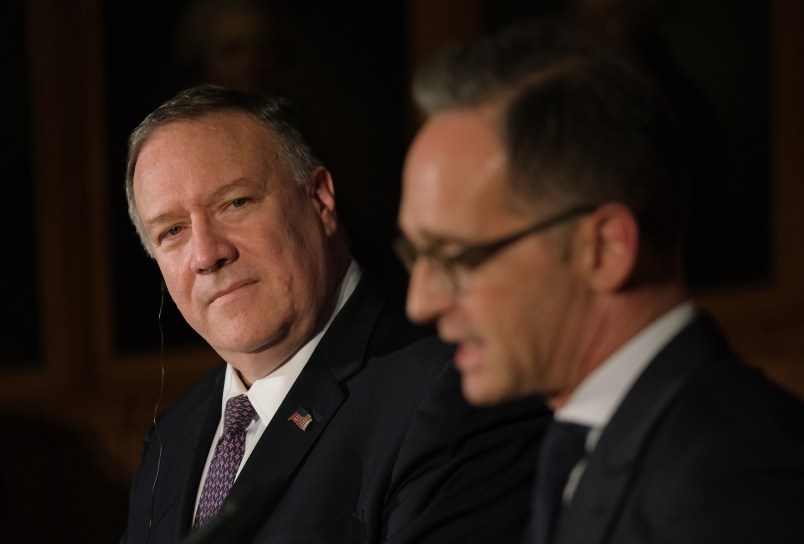Secretary of State Mike Pompeo on Thursday narrowly denied the testimony of a top aide of his who resigned partially out of frustration that the State Department wasn’t willing to publicly support a diplomat who President Donald Trump had attacked.
Michael McKinley had spent decades as a diplomat when Pompeo asked him to be a senior adviser at State Department headquarters, but McKinley resigned after nearly a year in the role, and just a week before testifying in the House’s impeachment inquiry.
McKinley testified that he repeatedly pushed the State Department to release a statement in September supporting the ousted ambassador to Ukraine, Marie Yovanitch, who was recalled after a smear campaign against her led by Rudy Giuliani and others.
Yovanovitch was recalled in May, but a memorandum of President Donald Trump’s July 25 phone call with Ukrainian President Volodymyr Zelensky was released on Sept. 25 — it revealed that Trump attacked the former ambassador repeatedly during the call. After memorandum was released, McKinley testified, he pushed Pompeo to release a statement supporting Yovanovitch multiple times.
Asked during a press conference why he never released such a statement, Pompeo instead denied the adviser’s testimony.
“It’s not surprising that when Ambassador Yovanovitch returned to the United States that he didn’t raise that issue with me,” the Secretary of State said.
“It shouldn’t surprise anyone that in May when that took place, he didn’t say a thing to me.”
In fact, McKinley acknowledged during testimony that he didn’t bring up the issue in May.
“I never spoke about her recall with anyone in the Department,” he said.
McKinley only involved himself months later, when the memorandum of the call between Trump and Zelensky revealed that both leaders had attacked Yovanovitch during the conversation
“At this point and over the coming days, I suggested to senior levels of the department that a statement of support for Ambassador Yovanovitch’s professionalism should be released,” he testified.
McKinley detailed those efforts over several hours of testimony. He brought up the issue with Secretary Pompeo several times, he said, with no response.
“There was no pushback, no comment. It was just an acknowledgement that I was raising it,” McKinley recalled of Pompeo’s reaction.
“Nobody ever really said anything to me,” he testified later. The silence from the department, he said separately, was “puzzling and baffling.”
McKinley said he ultimately heard that Pompeo would not be releasing a statement supporting Yovanovitch from a State Department press official.
The official told McKinley that Pompeo thought the statement would draw undue attention to Yovanovitch and that it would be better to let the matter die down, McKinley recalled.
“It would be in part to protect Ambassador Yovanovitch,” McKinley testified, explaining what he was told of Pompeo’s reasoning.



